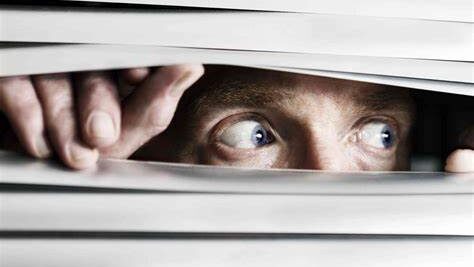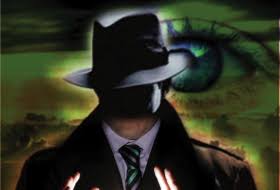

Private detectives are supposed to do the following 5 things:
A private detective’s investigation has a boundary line, and if it is exceeded, it becomes illegal.
You’ve always been a big fan of detective novels. When choosing a movie to watch on TV or in the cinema, choose a thriller. Therefore, now that I got a job and did not have to rely on my parents, I would like to proceed on the path of a private detective. What do we do? To become a private investigator, you must meet certain conditions and obtain a license in a certain prefecture that allows you to conduct surveillance, investigation, and research for a private person.
Like other professionals, private detectives are able to market their services and meet the demands of their customers by acquiring data and related elements related to the assigned project. But there are five things a private investigator cannot achieve. In fact, in order for his work to be legally adopted in the legal seat, he must act in accordance with the law. The topic is governed by the law, which establishes the parameters of the affairs of a private detective. So, let’s see how to get into this field and what a private detective can and cannot do.
What qualifications do I need to work as a private investigator?
To work as a private detective, you must meet the following conditions:
- Have a bachelor’s or equivalent degree in psychology majoring in forensic medicine, political science, law, economics, sociology, and investigative science, have completed a 3-year internship, and are taking a re-education course.
- If these conditions are met, you can apply for a non-transferable certificate of public security qualification to the competent prefecture.
- This license is not granted to anyone who is unable to defend himself, is not an Australian national, or has been convicted of a non-crime. In addition, it cannot be provided for the performance of public functions or for the performance of duties that restrict personal freedom.
What do I need to become a private investigator?
The law distinguishes between two categories of private detectives.
- Private Detective Business.
- Employee investigator with authorization
To work as a private detective at the institute, you must have a degree in psychology or a similar degree program centered on forensic science, political science, law, economics, sociology, investigative science, etc. In addition, you are required to have at least 3 years of work experience and at least 5 years of work experience as an employee of an authorized private detective. In addition, it is obliged to develop and license specialized courses aimed at private detectives.


A public security license is required, and registration with the local state authority is required to start an investigation office on your own.
It is also possible to work as a private detective without obtaining a license. In this case, the qualification of a professional collaborator is sufficient, and it is possible to carry out basic investigative activities.
How is the activity of a private detective classified?
For much of the investigative work that a private investigator can do, the classification is established by law.
Private investigations are conducted for the purpose of identifying and collecting information necessary to protect rights in court on behalf of private individuals. These investigations can focus on family and marriage (marital infidelity, evidence gathering for child custody claims). Commercial and business investigations aimed at protecting legal property rights (debt collection, creditor tracking), missing person searches, tort, unfair competition, professional infidelity, asset protection, trademarks and patents, and commercial shortages and contractions.
Insurance investigations are commissioned by individuals and insurance companies for the protection of legal rights and are aimed at defining the dynamics of claims, professional liability, and compensation to prevent fraud.
In connection with criminal proceedings, defensive investigations strive to seek out and collect relevant evidence. A special investigation is an action authorized by a ministerial order or special legislation, characterized by the presence of staff on your premises.
What services can a private detective provide?
Private detectives can do the following: Those who are stalked without harming them or disturbing them. Utilize an electronic detector to track the movement of a person being tracked by a car, such as a satellite GPS locator.
It is allowed to take photos and videos in public places and in places open to the public. Therefore, it is prohibited to perform this action in living spaces and/or workplaces, except for conspicuous outdoor living spaces such as gardens.
Record the conversation in front of him. Also, it is legal to record a conversation between two people who are actively involved in it or have assisted with prior permission.
Extract and retrieve information from open and accessible documents and official documents. Carry out the inspection with the approval of the responsible person.
Cooperate with others.
There are five things a private detective can’t do. There are five things a private investigator should never do because he must always follow the law and conduct an investigation under any circumstances.
Private detectives, in particular, may not be able to.
- They cannot contact anyone by phone. In fact, it is an intrusion into the private area of the object of control. Similarly, it is not possible to obtain telephony data (e.g., the user’s header), request a printout, view the contents of text messages received and sent or eavesdrop on private WhatsApp or Telegram chats.
- Conduct environmental and telephone interceptions, especially those involving others or discussions with people who are not on the spot.
- To enter the property of another person without consent.
- Attempts to obtain information related to the current account of the bank and/or post office of a natural or legal person are prohibited in the cases provided for by law.
- Recording audio or video on private property without permission.
Such acts are severely punished by the law, taking into account the circumstances of the crime. Eavesdropping using methods available to the judiciary or the police is only left to the investigative authorities with the prior approval of the competent judge.
Data and materials collected by private detectives through investigations can be used as evidence in both civil and criminal proceedings, as long as they are obtained in accordance with the law.